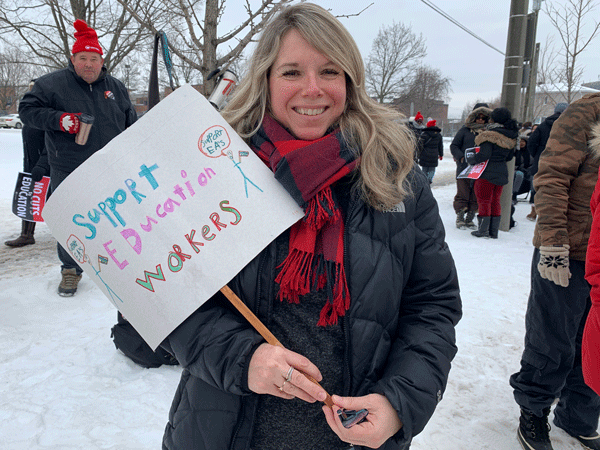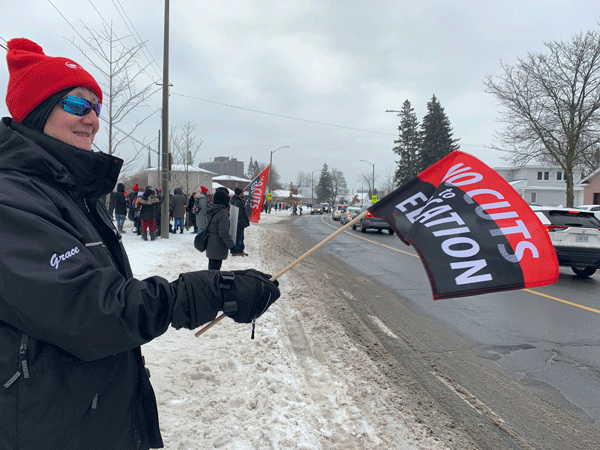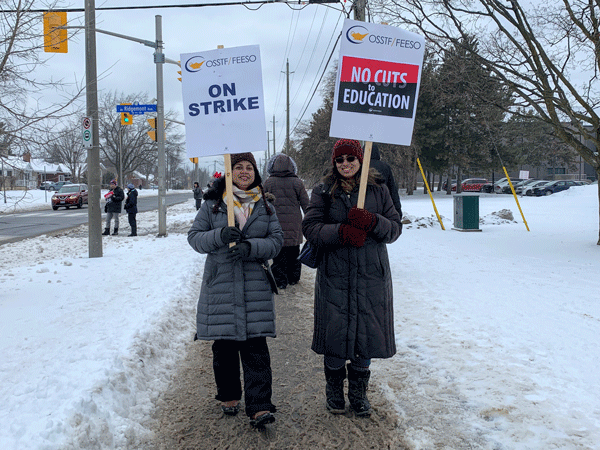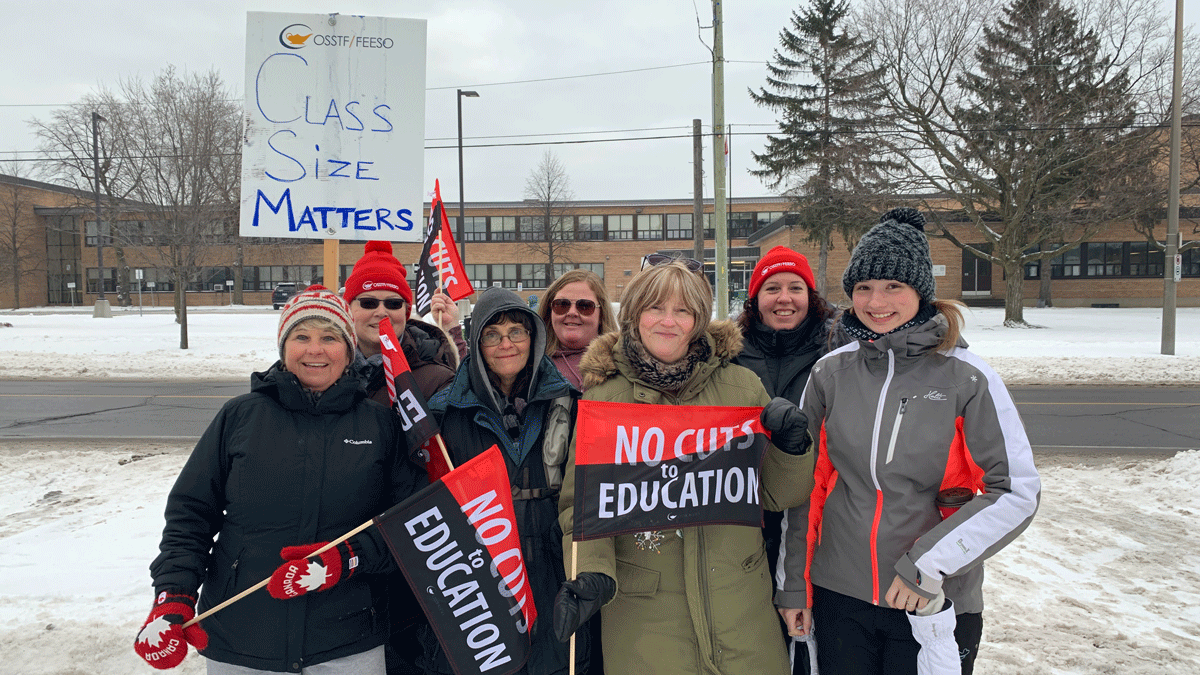The morning bell at Ridgemont High School was ringing on deaf ears Wednesday as striking public school teachers and support staff walked a picket line waving flags and cheering at honking cars.
The move comes amid widening tensions between the province and educators.
The provincewide job action is set to ramp up as the school year continues. The Elementary Teachers’ Federation of Ontario announced today that its members will stage a one-day strike on Jan. 20. In addition, Ontario’s English Catholic school teachers plan to walk off the job the following Tuesday if an agreement with the province is not reached.
In a statement on Jan. 13, Education Minister Stephen Lecce said, “While I am disappointed in the teacher unions’ continued focus on escalation that hurts our students, our Government will remain focused on improving public education and keeping students in class.”
The Ontario Secondary School Teachers’ Federation (OSSTF), which is seeking a new contract from the Ontario government has been engaged in labour actions across the province such as Wednesday’s one day walkout for several weeks. The issues for the union are the Ford government’s plan to increase class sizes and requiring that high school students take online courses. The teachers are also seeking a wage increase.
The Wednesday walkout closed high schools and some elementary schools in three Ottawa-area boards: the Ottawa-Carleton District School Board (OCDSB), the Upper Canada District School Board and the Conseil scolaire de district catholique de l’Est ontarien.
The union represents high school teachers, support staff such as office workers, custodial staff and early childhood and adult educators across Ontario. The latter group says they are equally frustrated as negotiations with the province have once again stalled. The union has been without a contract since August.
“I think right now the majority of what is publicized in the media is all about teachers,” says Alisha Brennan, an educational assistant at Canterbury High School.

“As educational assistants, people seem to forget that we’re actually in the classrooms with the students and it’s not about the money for us. You know, it’s about how we can better the students’ lives,” she says.
According to Brennan, the planned increase in average class size from 22 to 28 students will allow youth to “fall through the cracks.”
“If the class is too big a teacher cannot physically be there for every single student,” she says.
Brennan adds that it’s often support staff who notice things that students are struggling with.


Grace Burd, a custodian of 16 years who is working at Sir Guy Carleton Secondary School, says the teachers and support staff are “united” in their cause.
“It’s not a wage issue. It’s the future of our students. Like, is this online courses really beneficial to the kids?” Burd says.
“I don’t understand how [the Ontario government] can just force it upon them when the teachers are the ones that are doing this work. They know the students, they know what works for them and the government’s just not listening,” she adds.


Jean Neidy, an office administrator who has been working with the OCDSB for the last 25 years, says that while the issues extend beyond wages, a pay raise equal to the cost of living is indeed a demand.
“We should get the cost of living and we don’t,” Neidy says.
The province has offered a one per cent increase in annual wages but union members say it’s not enough.
“They need to be fair. People are trying to survive,” says Dawn Glover.
The OSSTF has been on a work-to-rule campaign since November. Designed to pressure the government, it involves a partial withdrawal of services such as not participating in standardized provincial assessments or providing comments on report cards along with rotating one-day walkouts.




